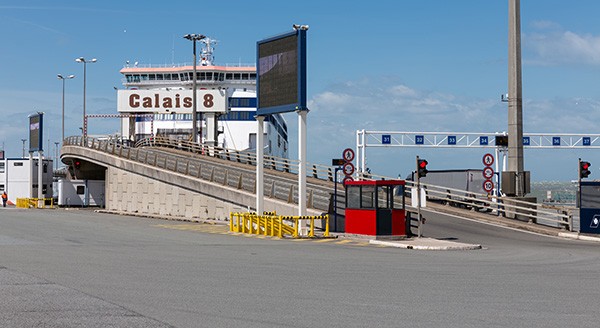The value of UK pork exports to the EU fell by 80% in February, compared with February 2020, as new Brexit rules and checks continued to stifle the trade.
Pork exports to all EU markets declined, with Ireland down by 86% and exports to Spain by 96%, ONS trade date shows. Pork exports to the EU have been particularly badly affected by the UK’s new trading status – the February figure follows an 84% year-on-year reduction in pork exports to the EU in January.
However, overall exports of pork totalled £48m in Feb 2021 compared to £45m in February 2020, as exports to non-EU markets doubled year-on-year.
Pork imports from the EU were also affected, falling by 37% from £163m in February 2020 to £103m, the data shows.
A summary of the February ONS trade data by the Food and Drink Federation (FDF) shows overall food and drink exports were down more than a fifth in February 2021, as EU sales dropped by 41%. Over the first few months of 2021, the value of the lost export sales to the EU has topped £1.1bn.
The dairy and meat sectors have been the worst impacted, with sales of milk and cream to the EU down 96%, and chicken and beef down by more than 75%, on top the huge reduction in the valuable pork trade.
Overall, food and drink imports were down more than 10% in February 2021, driven by a drop of 17% year-on-year from the EU, worth more than £425m. Imports from the rest of the world increased by nearly 6%.
Imports fell from each of the UK’s top six suppliers in February 2021, with these countries supplying around half of the UK’s imported food and drink.
Imports of pork, chicken and beef were down more than 30% compared to February 2020. Fruit and vegetables were down by21% and 13% respectively.
Inconsistent and incorrect demands
Dominic Goudie, head of international trade at FDF, said: “While UK food and drink exports to the EU have improved from a 76% fall in January, they are still down nearly 41% in February 2021.
“Exports to our biggest market, Ireland, have also dropped more than two thirds. UK businesses continue to struggle with inconsistent and incorrect demands at EU borders, and small businesses have been hardest hit due to the collapse of groupage distribution into the EU.
“New EU import requirements for composite products entered into force this week, adding even greater complexity, cost and uncertainty for UK exporters.
“It is essential that the EU-UK Partnership Council and its Trade Specialised Committees are convened to urgently address problems with the implementation of the EU-UK Trade and Cooperation Agreement to ensure small businesses are not shut out of trade by this trade deal.”




